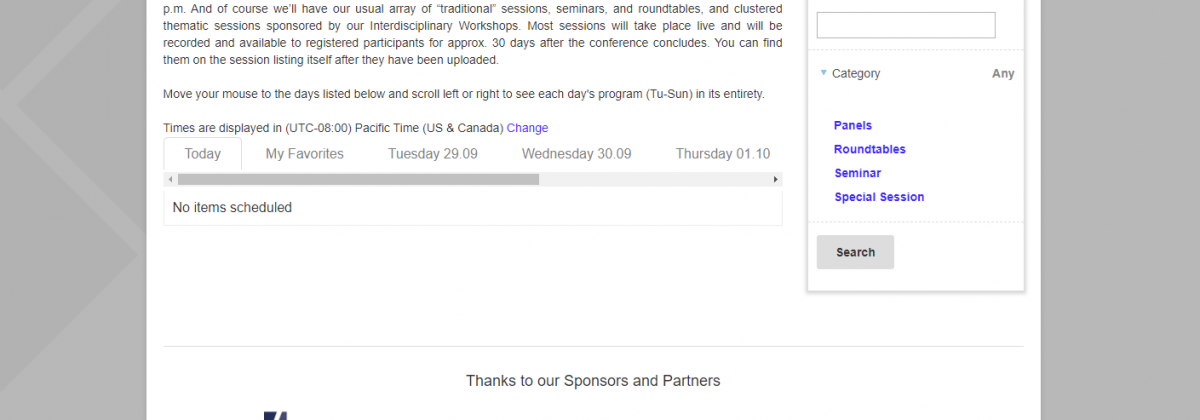I recently attended an online conference that was enormous, but the online format at this time allowed for a much more paced digestion of the content and general exposure.
The experience has been valuable in understanding more about the structure of the field and academia, the current questions and the work being done.
Some of it has been a treat in terms of having the opportunity to play with ideas about books I’ve read or themes I’ve engaged with at a higher level and to reactivate those neurons, some of it has been a bit jarring, sometimes surprising, and put a little ink in my pen. Sometimes getting a wider perspective on one’s experience also means getting a more granular perspective.
I’ve also been able to listen in on the current concerns facing the field (and academia at large), most about survival, to look at the ways that the field is engaging with larger global concerns, politically, technologically, ethically, and a little bit about how the field is considering internal concerns.
I don’t really feel like sharing much about my internal journey spanning various panels and their content at this point — maybe later — but do have a few contributions from my perspective.
The Tech
In spite of the conference taking place online, I picked up on an undercurrent of resistance and aversion to tech large and small. Which is totally understandable given that a lot of the tech solutions to the covid era have been forced, while other products distract from or impede the work of academia. Still other tech poses a direct threat to the authority of the higher ed model. And yet more tech threatens our tenets of democratic society in general. In addition, fields like digital humanities are just not taken very seriously or are not yet well-defined.
What I think remains a blind spot for the discipline is the very real opportunity higher ed has to shape user experience, ethics, and tools at this moment, to be an active agent in evaluating what gets adopted, and to demonstrate need for different solutions. Change to tech platforms can happen with near-immediacy, in contrast with the slow pace of change in academia. Companies which design products take user experience feedback – especially institutional feedback – seriously and create space for it. Right now, academia is still fairly large and the imprimatur of .edu domain names carries weight — the humanities could be a significant force in shaping the tech landscape, providing historically-based views into tech ethics, informing policy, enforcing the preservation of the values of the humanities, ensuring that those concerns, ethics and values are built into the products themselves. For example, the entire field of User Experience is based on empathy, a goal (ostensibly) shared by the work of the humanities.
Infodemic
[ ] There’s a lot to say here. A lot of it has probably been said somewhere already so I’m not diving in here.
Working Groups I would want to convene if I were more involved in the discipline, which I’m not really planning to be.
Tech Adoption: It seemed at this event like everyone was sort of wandering around on their own or at times with a campus librarian in search of tech solutions for their projects – there are open source tech groups and consultants out there to collaborate with who can really help this process. Others were adopting what was quick and easy but ethically extremely problematic given the difficulty of getting the right data sets on the right platform. What are the disciplinary standards on what tech can ethically adopted with an eye to privacy, transparency, access, and related: what academic content can be open sourced and which not. Which tech platforms set the best example for students in terms of how people can and should expect to be treated digitally in terms of privacy, agency, transparency.
Tech Advocacy: How can tech be used to help the field. What products would work better, how should they work, what concerns should it address, what do you want. There’s opportunity to collaborate and shape those products before they become forced on anyone.
Alt-Ac: there was not a single alt-ac panel at this event, which was surprising, but then again not surprising at all.
Publishing outside of Academia: Strategize advocacy, visibility, the how and where and what to publish in public intellectual spaces. What strategy would simultaneously provide value to the public while also inviting readers to engage more deeply with and even support the work being done. How can this be supported rather than snubbed within academia. What counts as subject expertise or being “qualified” in this area.
Big Challenges
Lack of goodwill. Grads of abusive programs and advisors aren’t going to be too anxious to help the cause of those programs when they need help. But the people who the programs have shed for any reason are often in the best position to bridge the gap between academia and other opportunities with actual experience in different worlds. Tied in with this, lack of transparency, insularity, and arrogance, also at times on display during the event I attended.
In the absence of pre-existing goodwill, accountability that explicitly acknowledges wrongdoing in a simultaneously safe and empowering rather than controlled forum/context and makes meaningful strides to reduce the sense of institutional betrayal and acknowledging the dignity and humanity of those who have been injured. I have little optimism that this would happen at a large scale, but small steps are of course better than none.
Lack of interest. People want to do what they’re good at and trained for rather than need to take a reactive stance that takes them outside of disciplinary comfort zones. I don’t really have a response for that one.
